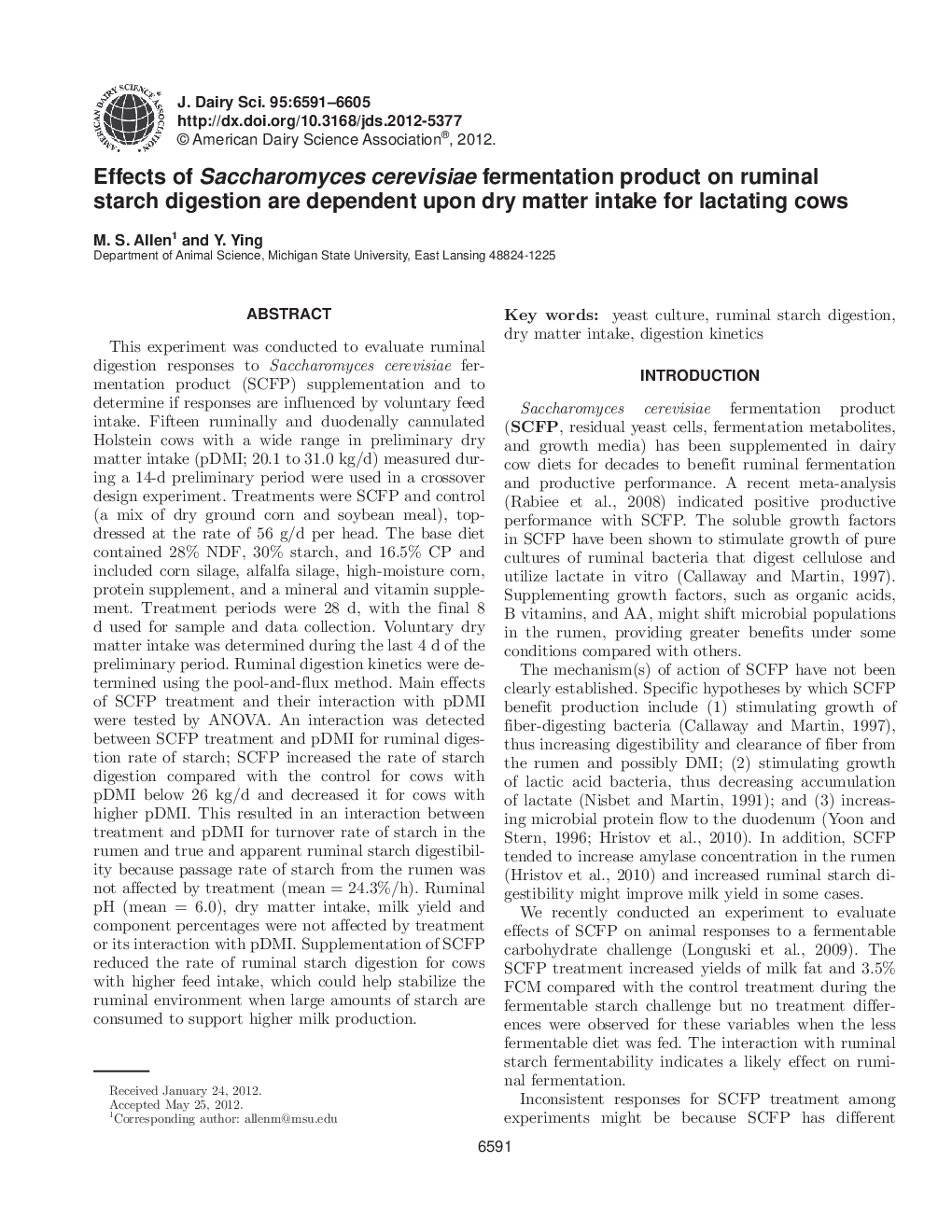| Article ID | Journal | Published Year | Pages | File Type |
|---|---|---|---|---|
| 10979569 | Journal of Dairy Science | 2012 | 15 Pages |
Abstract
This experiment was conducted to evaluate ruminal digestion responses to Saccharomyces cerevisiae fermentation product (SCFP) supplementation and to determine if responses are influenced by voluntary feed intake. Fifteen ruminally and duodenally cannulated Holstein cows with a wide range in preliminary dry matter intake (pDMI; 20.1 to 31.0 kg/d) measured during a 14-d preliminary period were used in a crossover design experiment. Treatments were SCFP and control (a mix of dry ground corn and soybean meal), top-dressed at the rate of 56 g/d per head. The base diet contained 28% NDF, 30% starch, and 16.5% CP and included corn silage, alfalfa silage, high-moisture corn, protein supplement, and a mineral and vitamin supplement. Treatment periods were 28 d, with the final 8 d used for sample and data collection. Voluntary dry matter intake was determined during the last 4 d of the preliminary period. Ruminal digestion kinetics were determined using the pool-and-flux method. Main effects of SCFP treatment and their interaction with pDMI were tested by ANOVA. An interaction was detected between SCFP treatment and pDMI for ruminal digestion rate of starch; SCFP increased the rate of starch digestion compared with the control for cows with pDMI below 26 kg/d and decreased it for cows with higher pDMI. This resulted in an interaction between treatment and pDMI for turnover rate of starch in the rumen and true and apparent ruminal starch digestibility because passage rate of starch from the rumen was not affected by treatment (mean = 24.3%/h). Ruminal pH (mean = 6.0), dry matter intake, milk yield and component percentages were not affected by treatment or its interaction with pDMI. Supplementation of SCFP reduced the rate of ruminal starch digestion for cows with higher feed intake, which could help stabilize the ruminal environment when large amounts of starch are consumed to support higher milk production.
Related Topics
Life Sciences
Agricultural and Biological Sciences
Animal Science and Zoology
Authors
M.S. Allen, Y. Ying,
